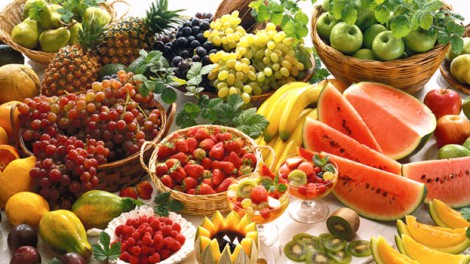A vegetarian diet does not mean you’re condemned to eating raw carrots for each and every meal. Far from it! It is actually an extremely diverse diet. It is full of opportunities to try new things and use ingredients and combinations that perhaps you have never considered using while you followed the traditional meat-based diet. The variety is amazing and the taste can be truly fantastic. But before I try to convince you with a few mouth-watering recipes on this blog, I will give you some insights on vegetarianism and a few reasons why it is worth giving it a go. Read on and come with me on a journey of discovery.
Who is a vegetarian?
Vegetarianism is a broad category. Some follow a strictly plant-based diet, omitting everything that has anything to do with animals, while some vegetarians allow dairy and eggs into their diet. The strictly plant-based vegans and the dairy and egg consuming ovo-lacto vegetarians tend to follow completely different diets.
Ovo vegetarianism allows eggs but not dairy while lacto vegetarians allow dairy but not eggs. These are the mid-points of vegetarianism. Other trends include raw veganism, which is even stricter than veganism, allowing only raw or moderately cooked food intake. Fruitarianism allows the consumption of fruits only. Other strict vegetarian diets include the Sattivic diet, Buddhist and Jain vegetarianism.
When I talk about vegetarianism on my blog, I will follow the definition of the British Vegetarian Society. Accordingly, vegetarian is “someone who lives on a diet of grains, pulses, nuts, seeds, vegetables and fruits with, or without, the use of dairy products and eggs. A vegetarian does not eat any meat, poultry, game, fish, shellfish or by-products of slaughter“.
As I am on a journey of discovery of vegetarianism and veganism, I sometime eat a moderate amount of cheese but tend to omit eggs and other dairy as much as I can. My objective is to embrace veganism in the longer term, but I do it gradually, without stressing myself over some moderate intake of dairy. Come and join me and let’s explore this lifestyle together.
Why is vegetarianism popular?
Most vegetarians can quote many reasons why they decided to go down the route of living on a mostly plant-based diet. The reasons can be fairly diverse. Some would mention health-related reasons while others may quote animal rights or environmental, economic or even spiritual motivations. Let’s examine the most common reasons for becoming a vegetarian.
According to the Vegetarian Times, motives of vegetarians tend to be quite diverse. I have collected several reasons why it is definitely worth giving this diet a go:
1) Lead a healthier life. Vegetarian diets help in the prevention, treatment or even reversal of heart disease and reduce the risk of cancer. This diet prevents and halts coronary artery disease, cardiovascular disease, diabetes and hypertension. Cholesterol levels of vegetarians are lower, while their fiber and antioxidant levels are higher than for those following the traditional, meat-based diets.
2) Control your weight with plants. Traditional Western diets that contain high levels of saturated fat are fattening. Obesity-related illnesses include heart disease, diabetes and stroke. Numerous studies and vegetarian meal plans suggest that overweight people who switch to a vegetarian diet can effectively lose weight and can keep their weight in a healthy range.
3) Live longer. Several scientific studies suggest that vegetarians can expect longer lifespans than meat-eaters. Notably, one study called the Okinawa Centenarian Study shows that the residents of the Okinawa Prefecture of Japan invariably live the longest lives in the world due to their primarily plant-based, low calorie diet.
4) Reduce the risk of contamination and save the lives of animals. Meat, poultry, fish and seafood are responsible for more food-borne illnesses and epidemics than plants. If you omit animals from your diet, you not only avoid potential toxic chemical intake, but you can also contribute to the saving of animal lives.
5) Energize yourself and reduce the symptoms of menopause. If you have good quality nutrition, your energy levels soar. Phytoestrogens mimic the behaviour of estrogen. Including foods in your diet that contain phytoestrogens can maintain a healthier hormonal balance in your system. Soy, apples, beets, cherries, dates, garlic, olives, plums, raspberries, squash and yams are particularly beneficial from this viewpoint.
A healthy vegetarian diet is diverse – it is low in fat and high in fiber. Nonetheless, if you choose to be a vegetarian, you must pay attention to the following, especially at the beginning of your journey:
– Vary your food intake by trying new recipes. There is an abundance of vegetarian recipes on the Internet.
– Consume enough calories to enjoy the full benefit of your new lifestyle. Remember that a planet-based diet will not be as calorie dense as your previous diet.
– Pay attention to your intake of protein, calcium, vitamin D, iron and vitamin B-12 from plants.
It is not only possible, but relatively easy, to create an eating regime that addresses these considerations. What’s your experience with vegetarianism? Are you thinking about making the switch? Or have you already ventured in the plant-based eating world. Let me know in the comments below.


